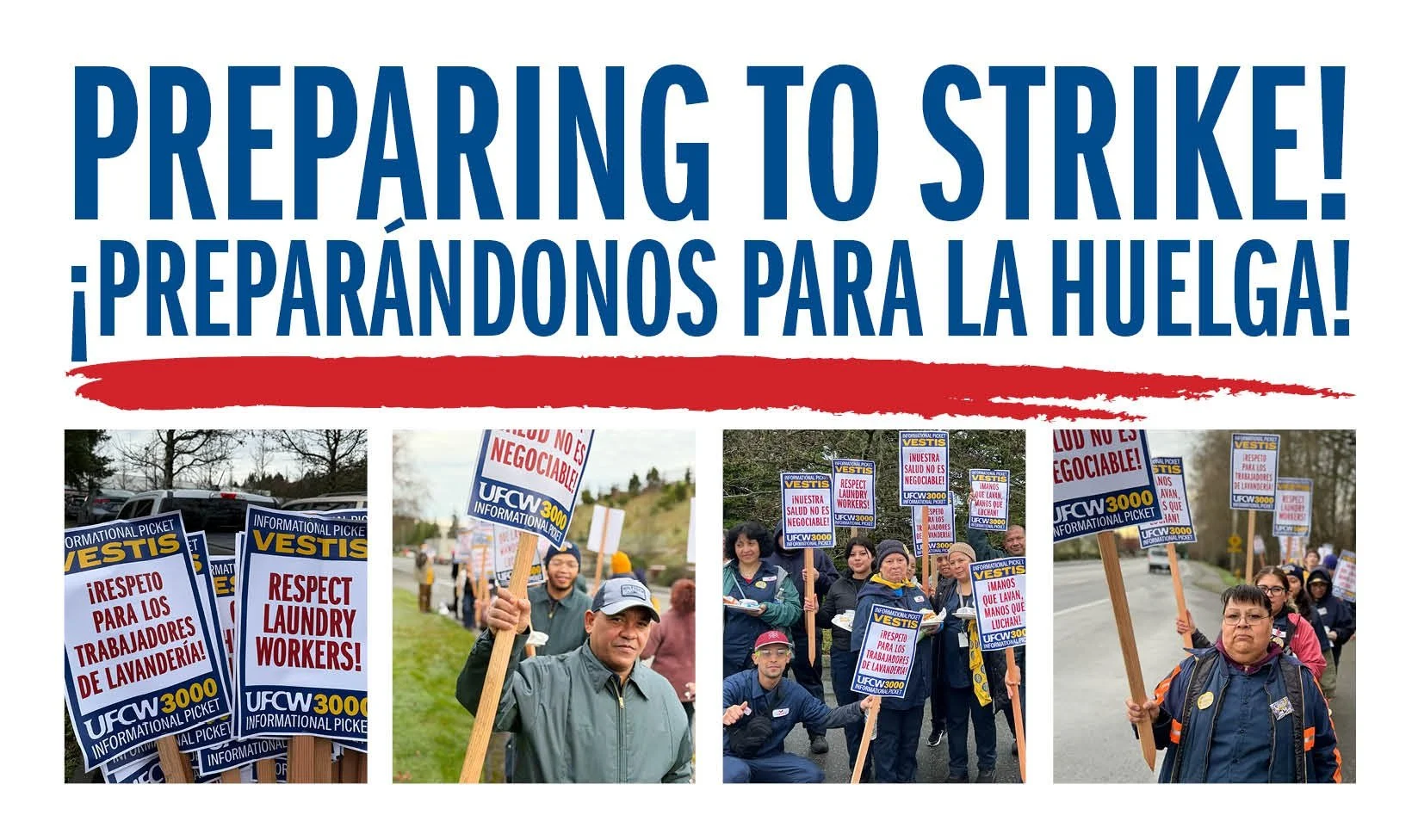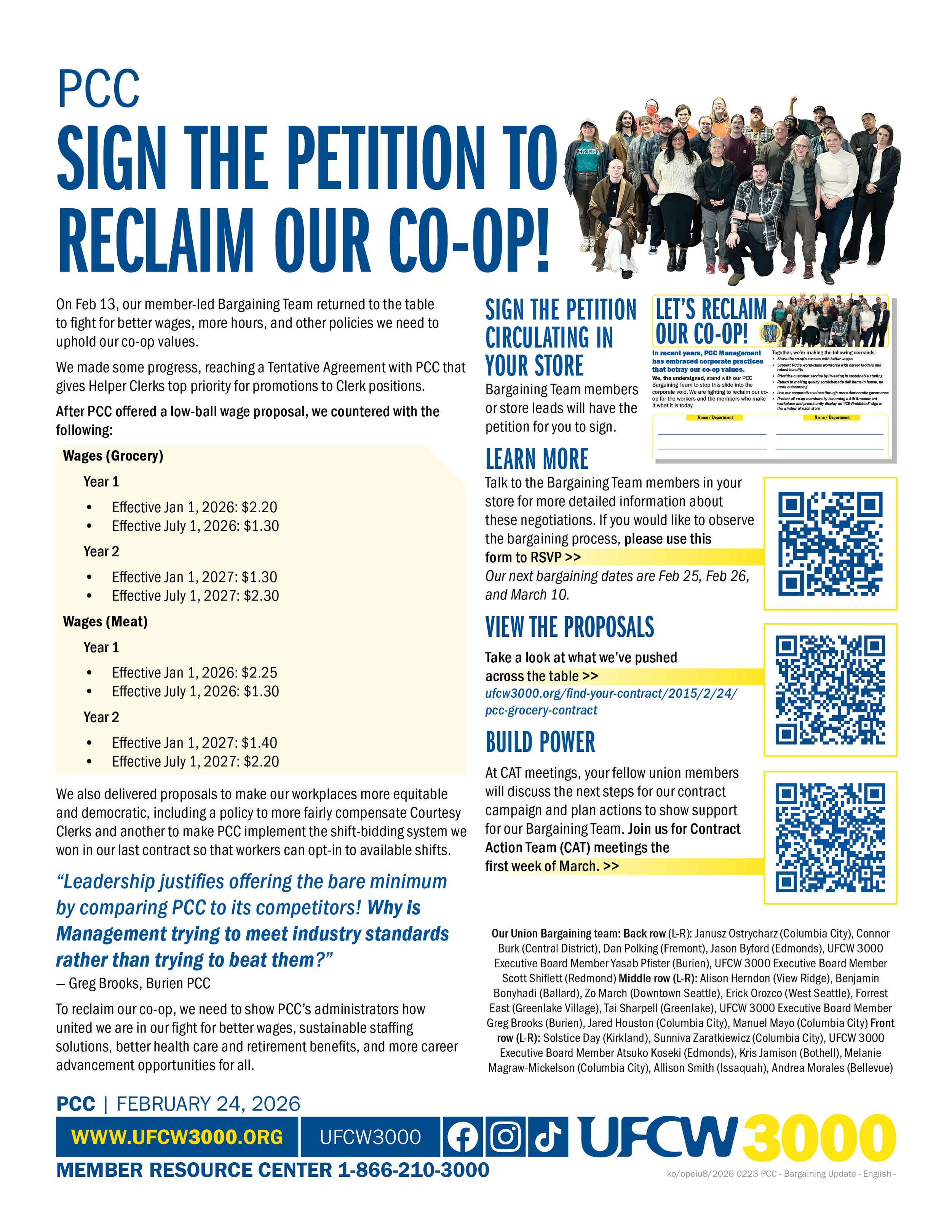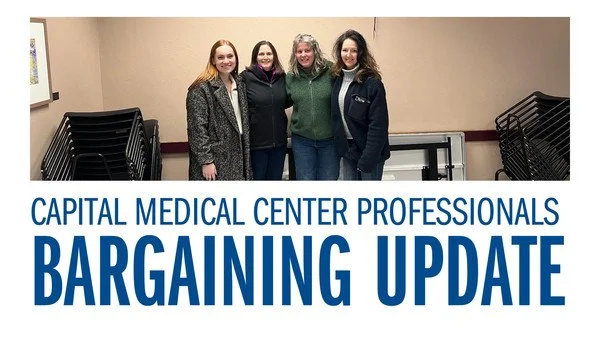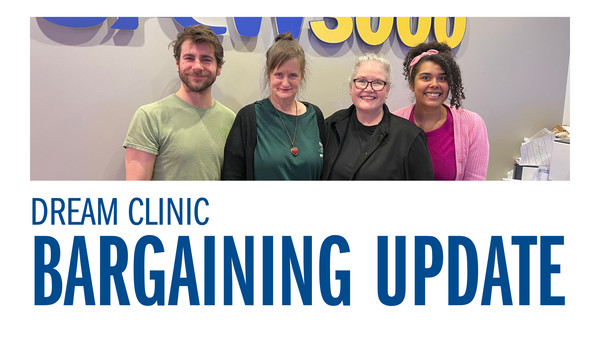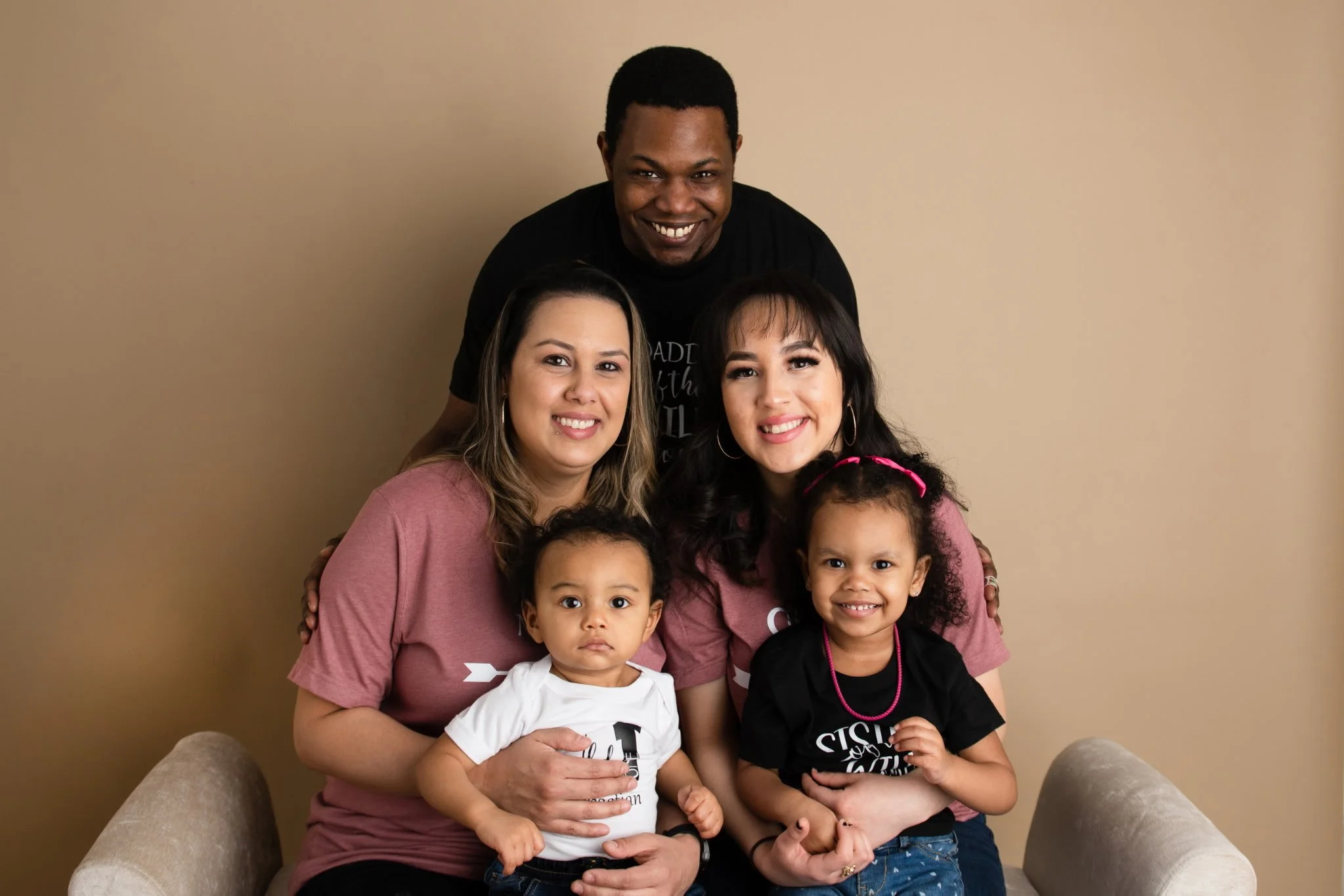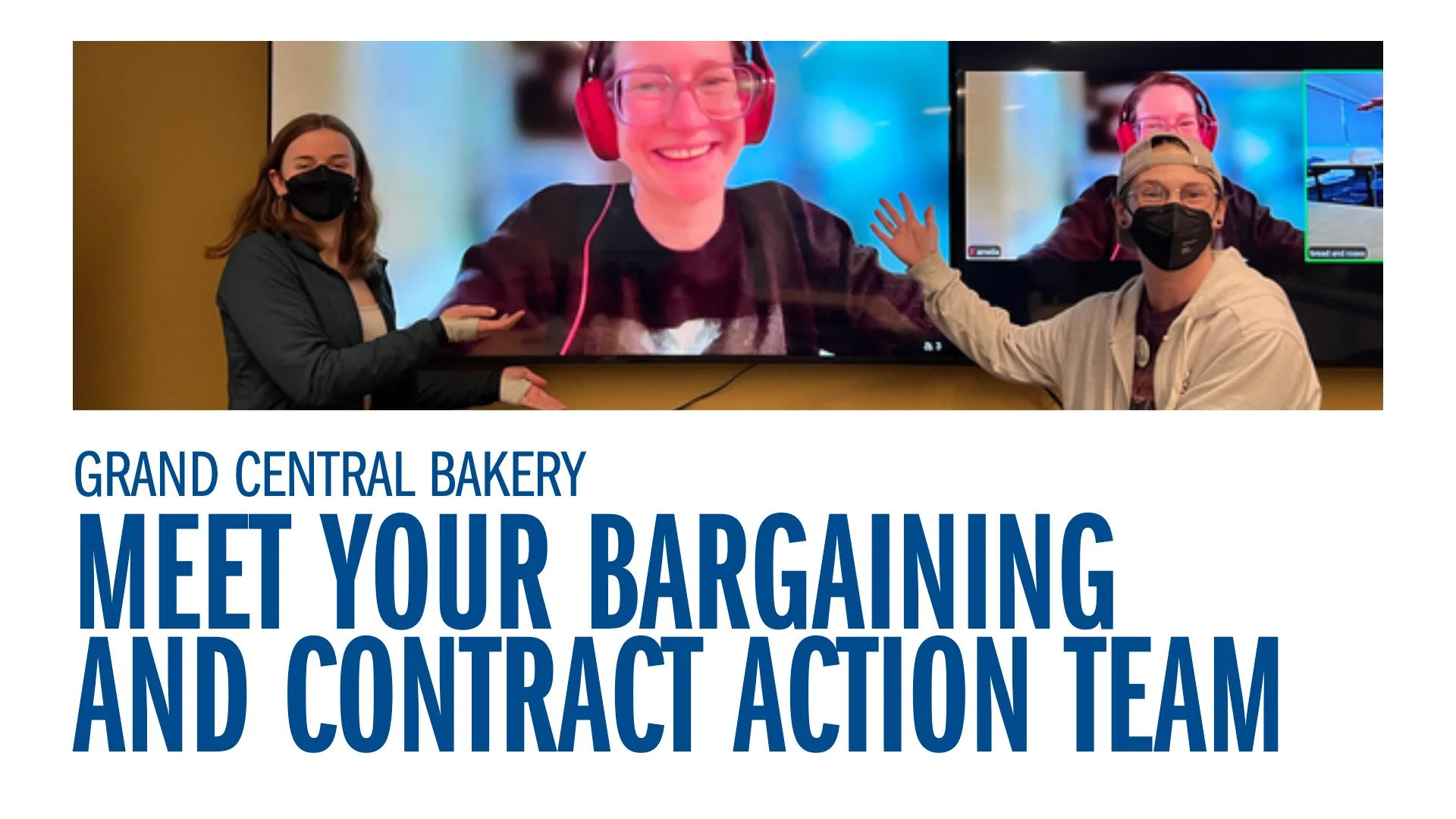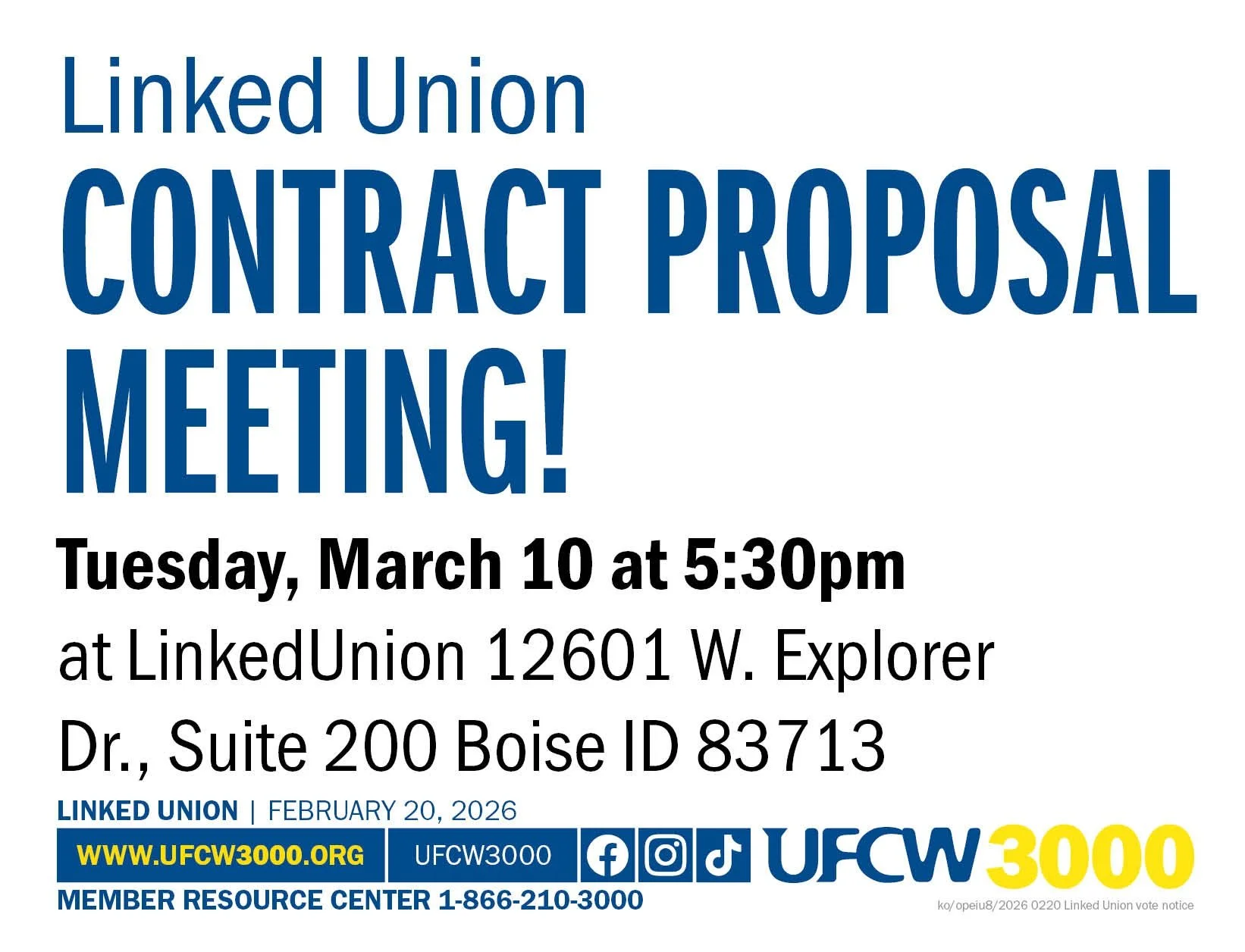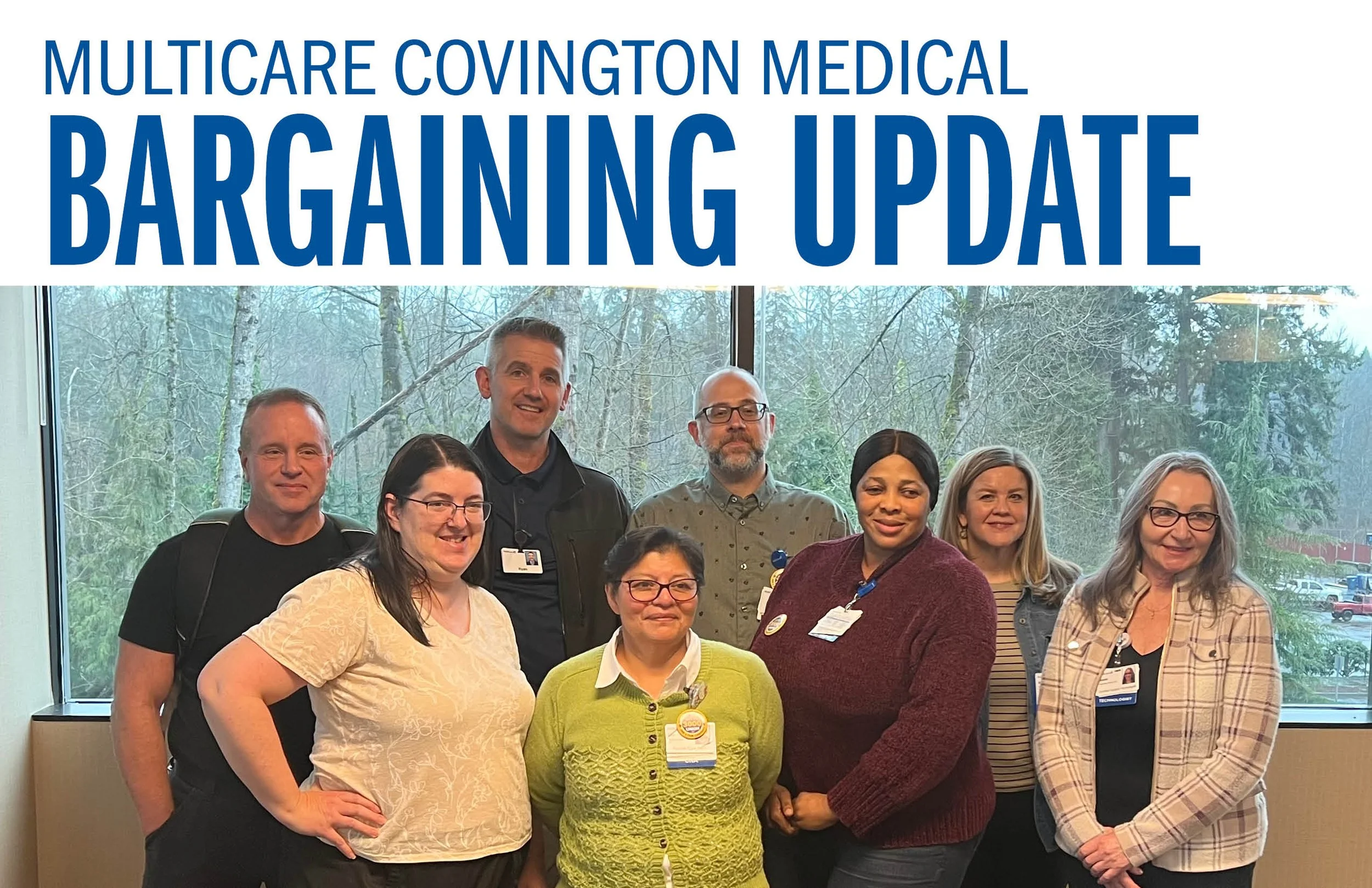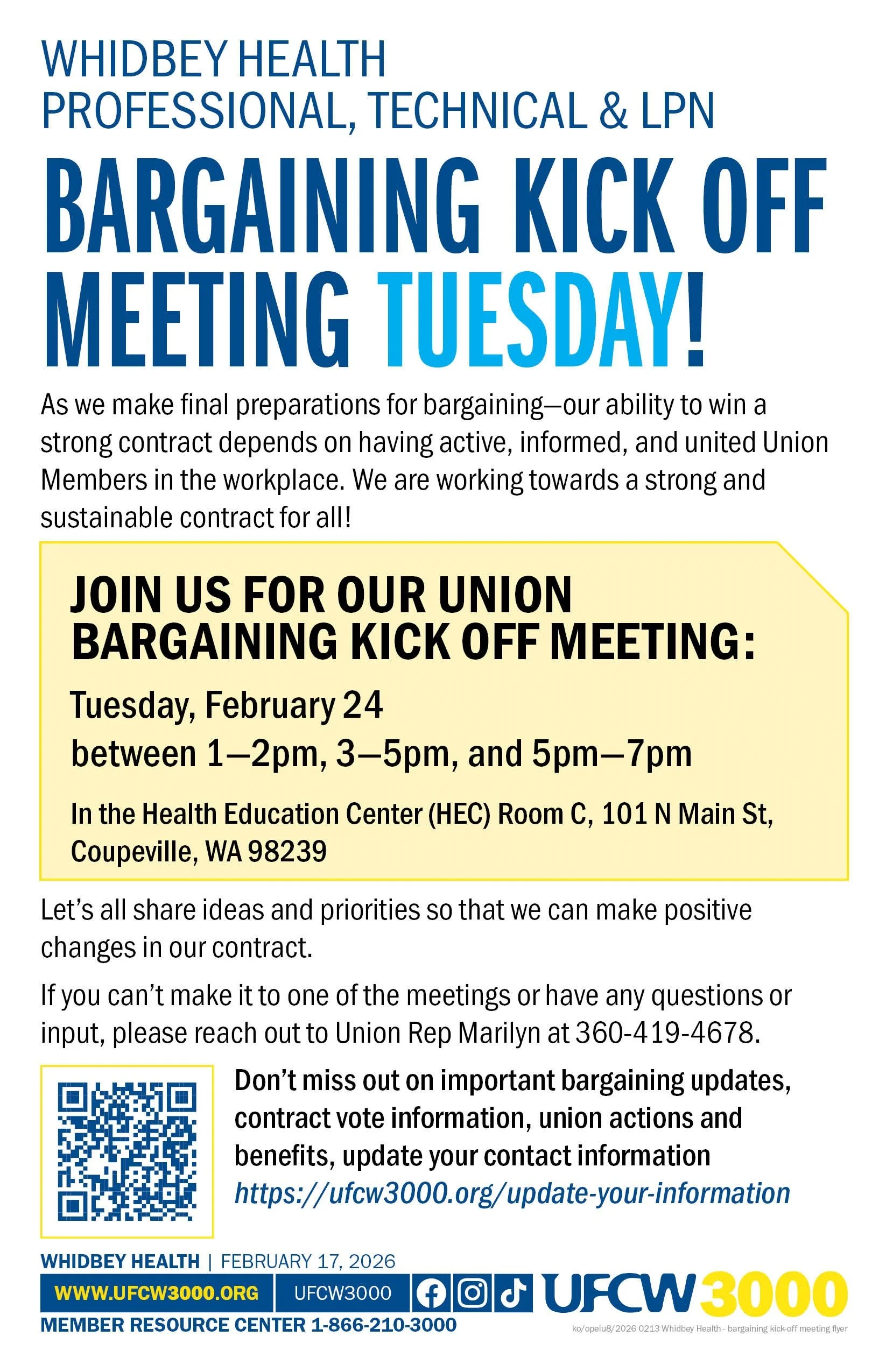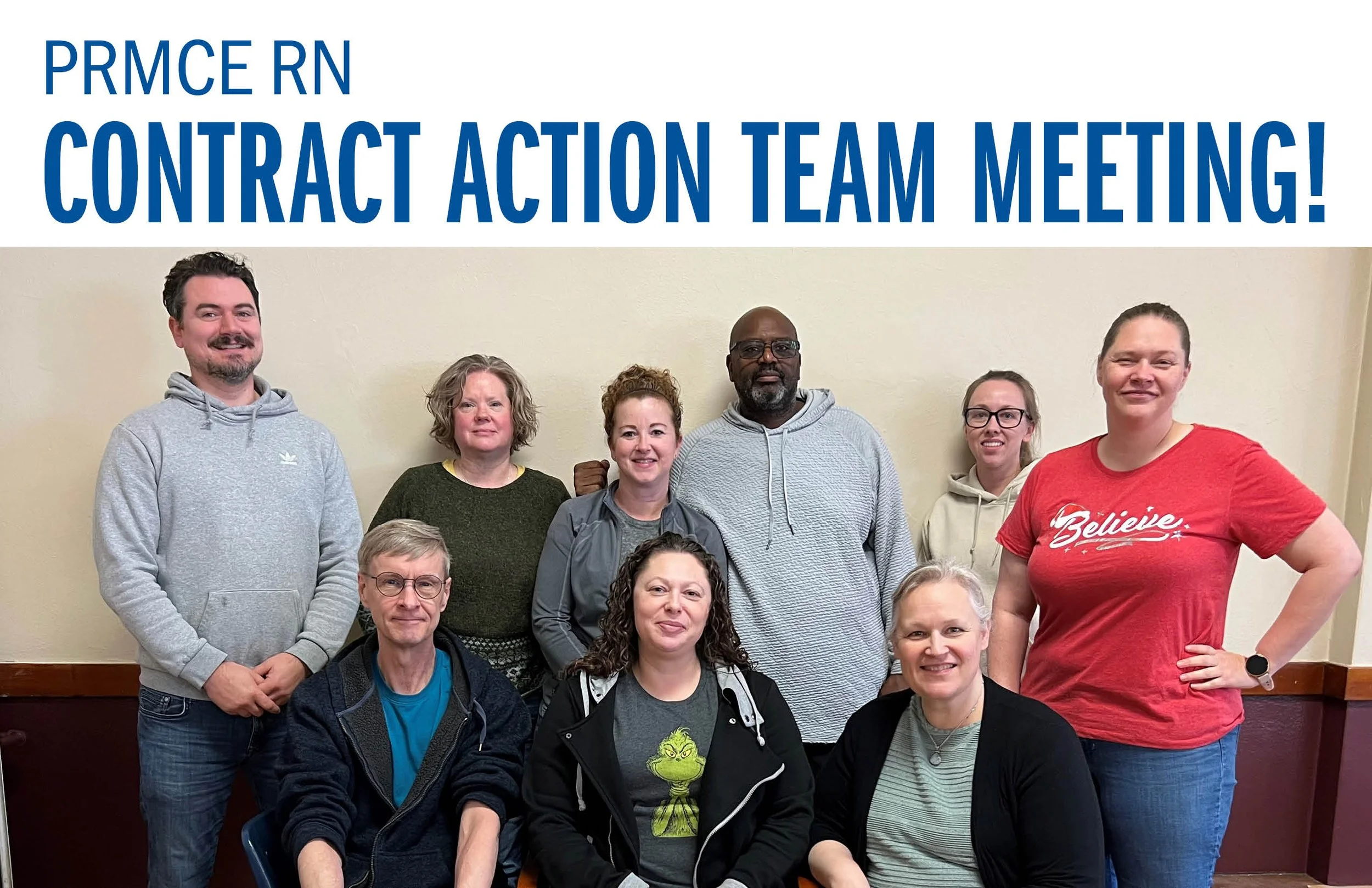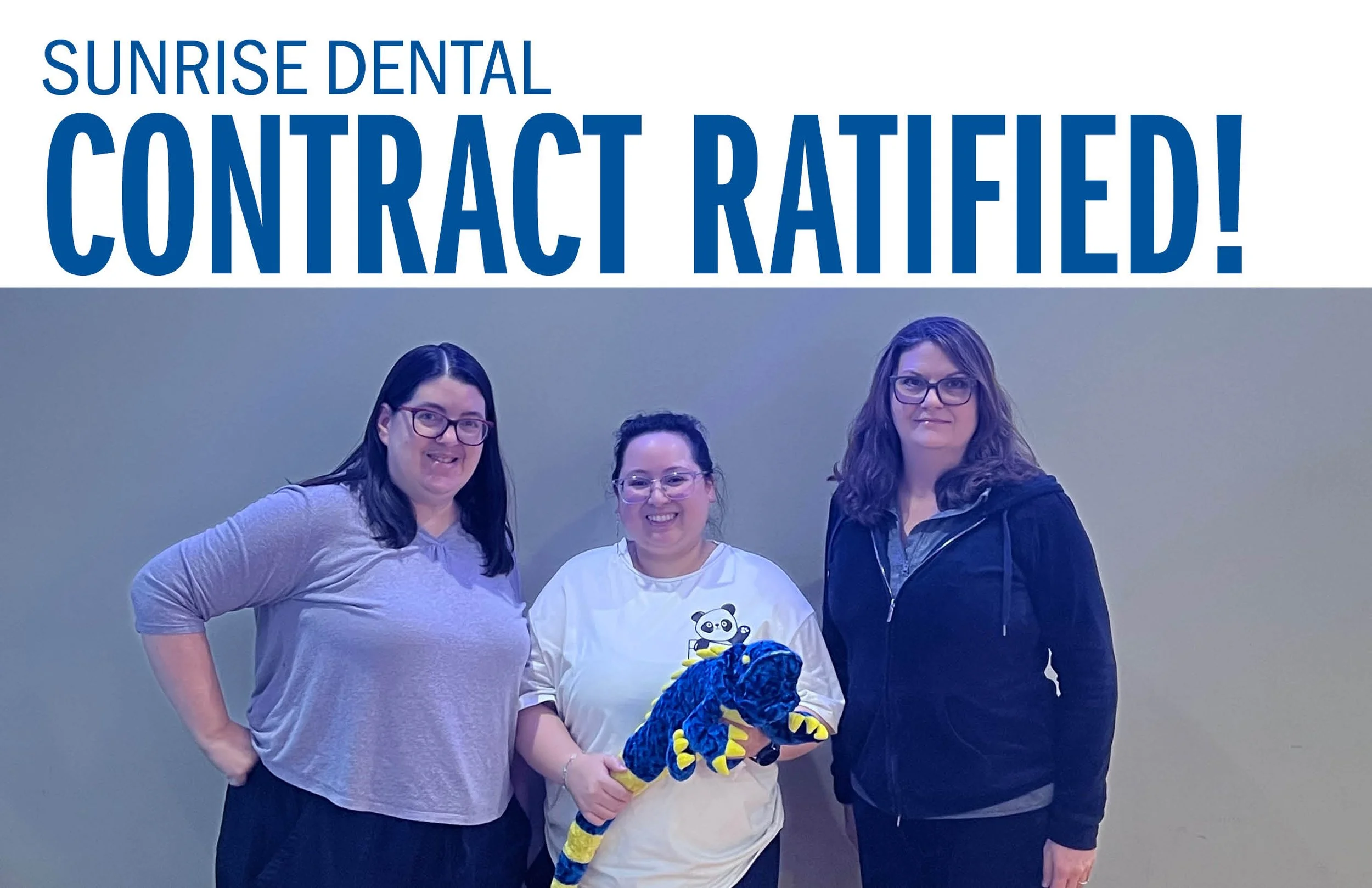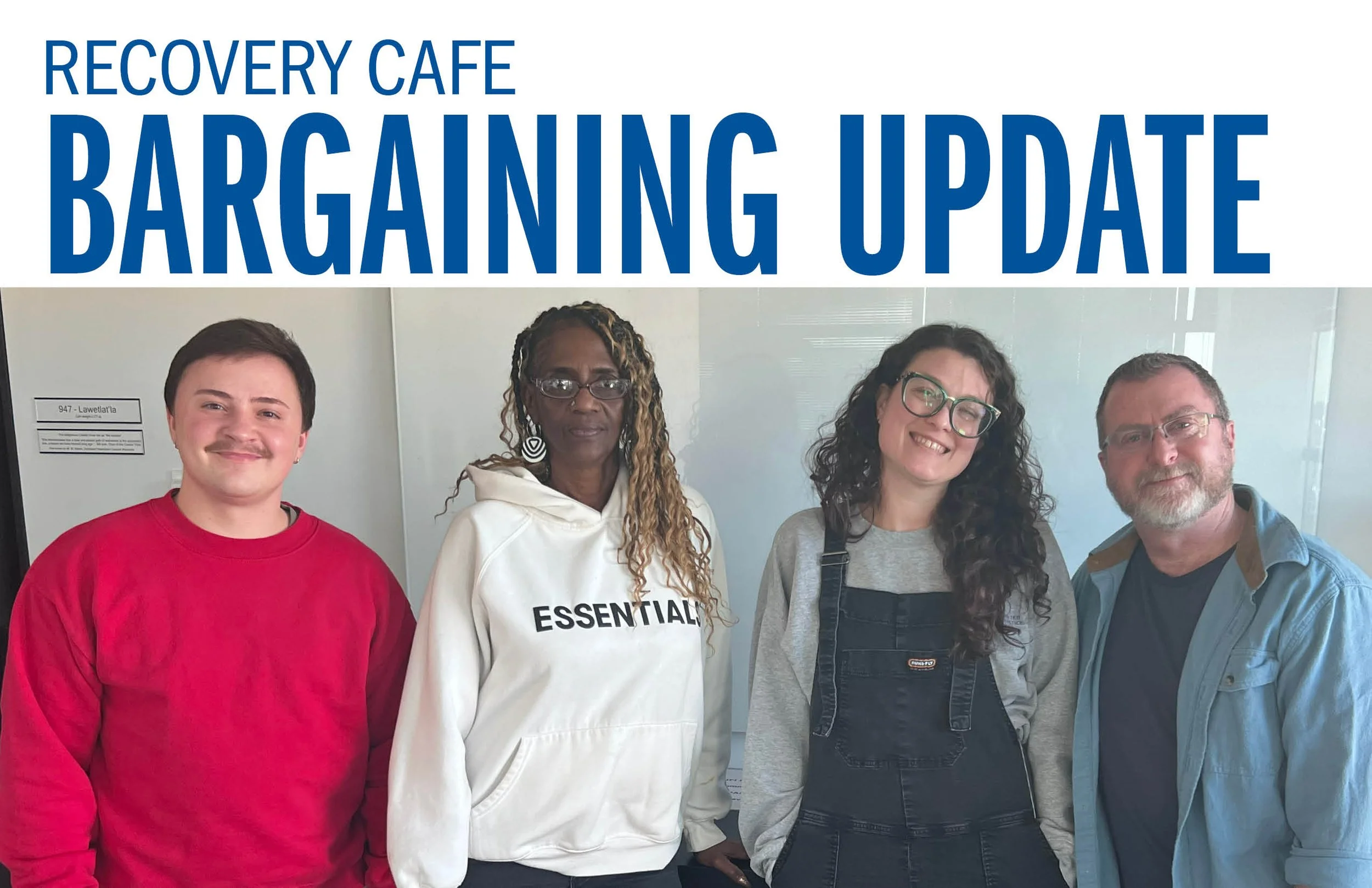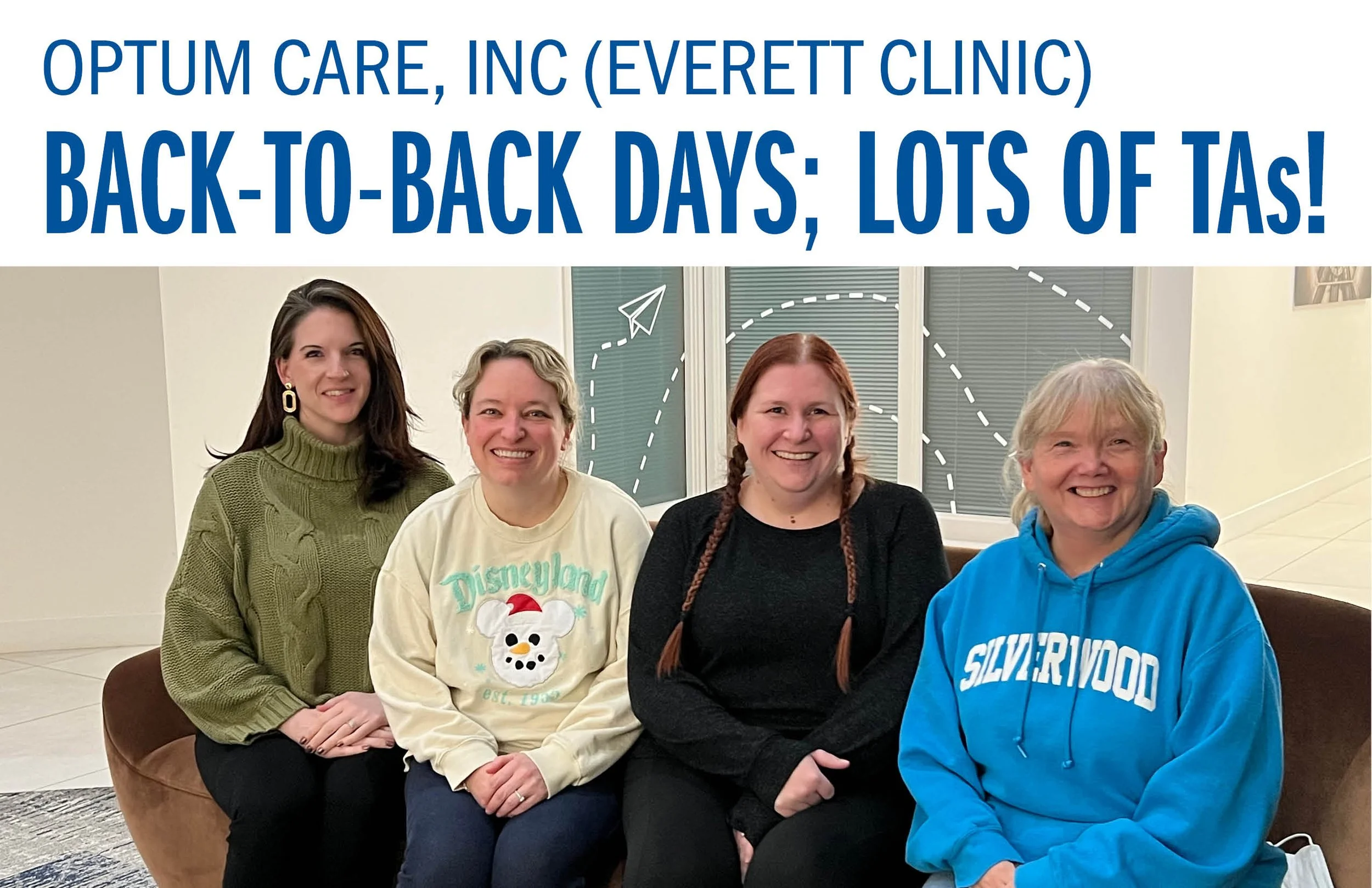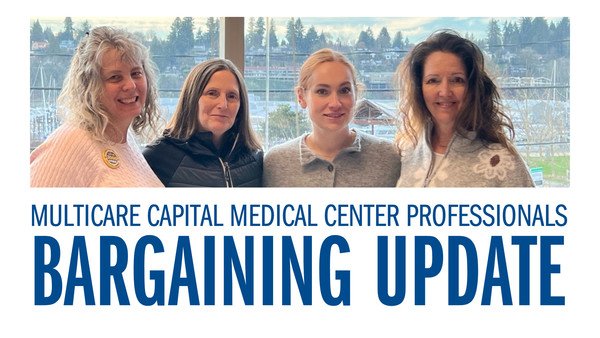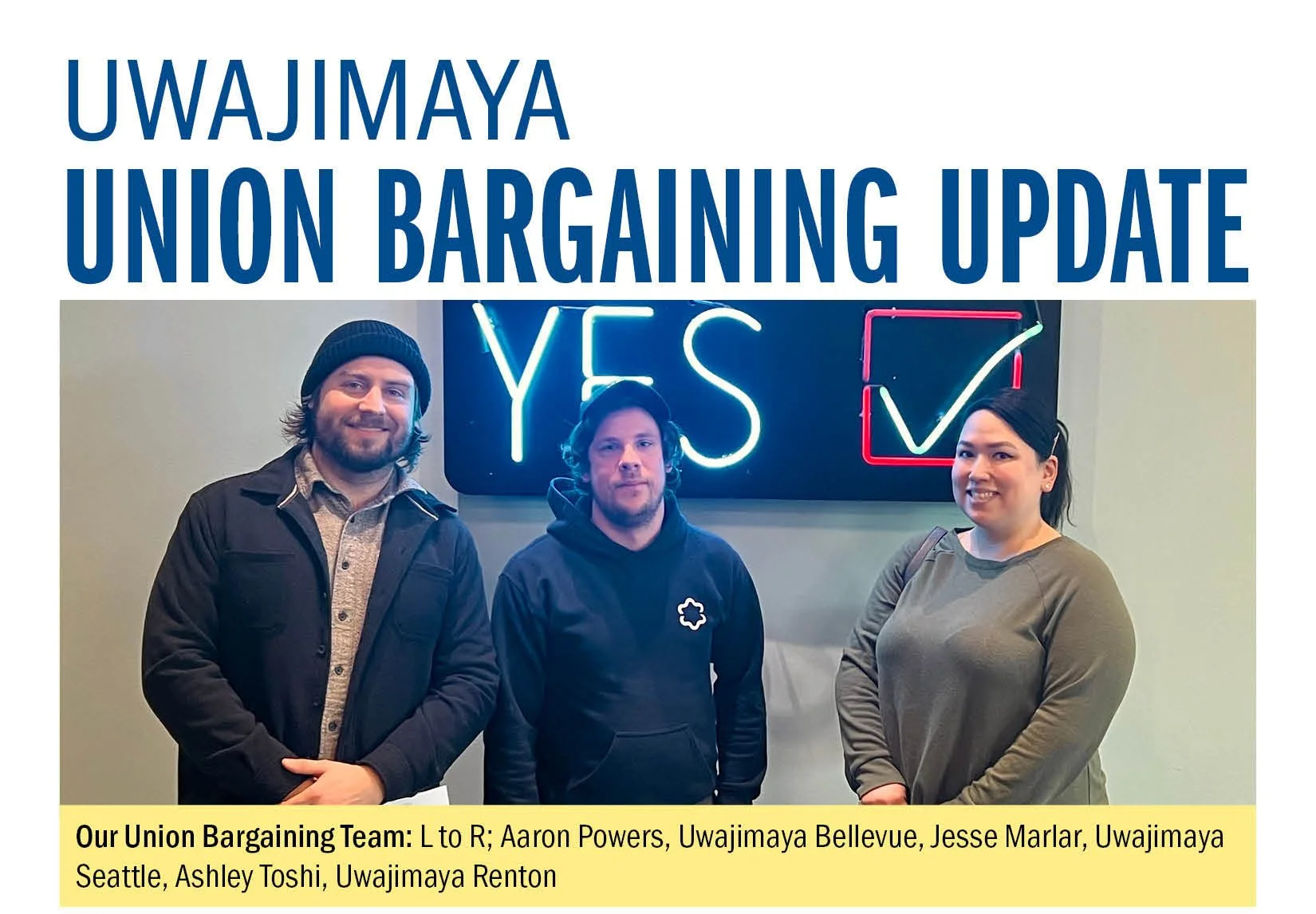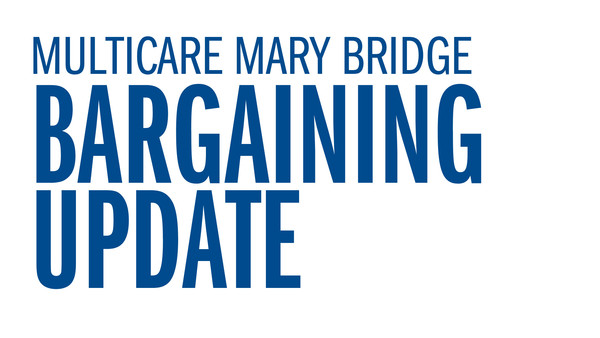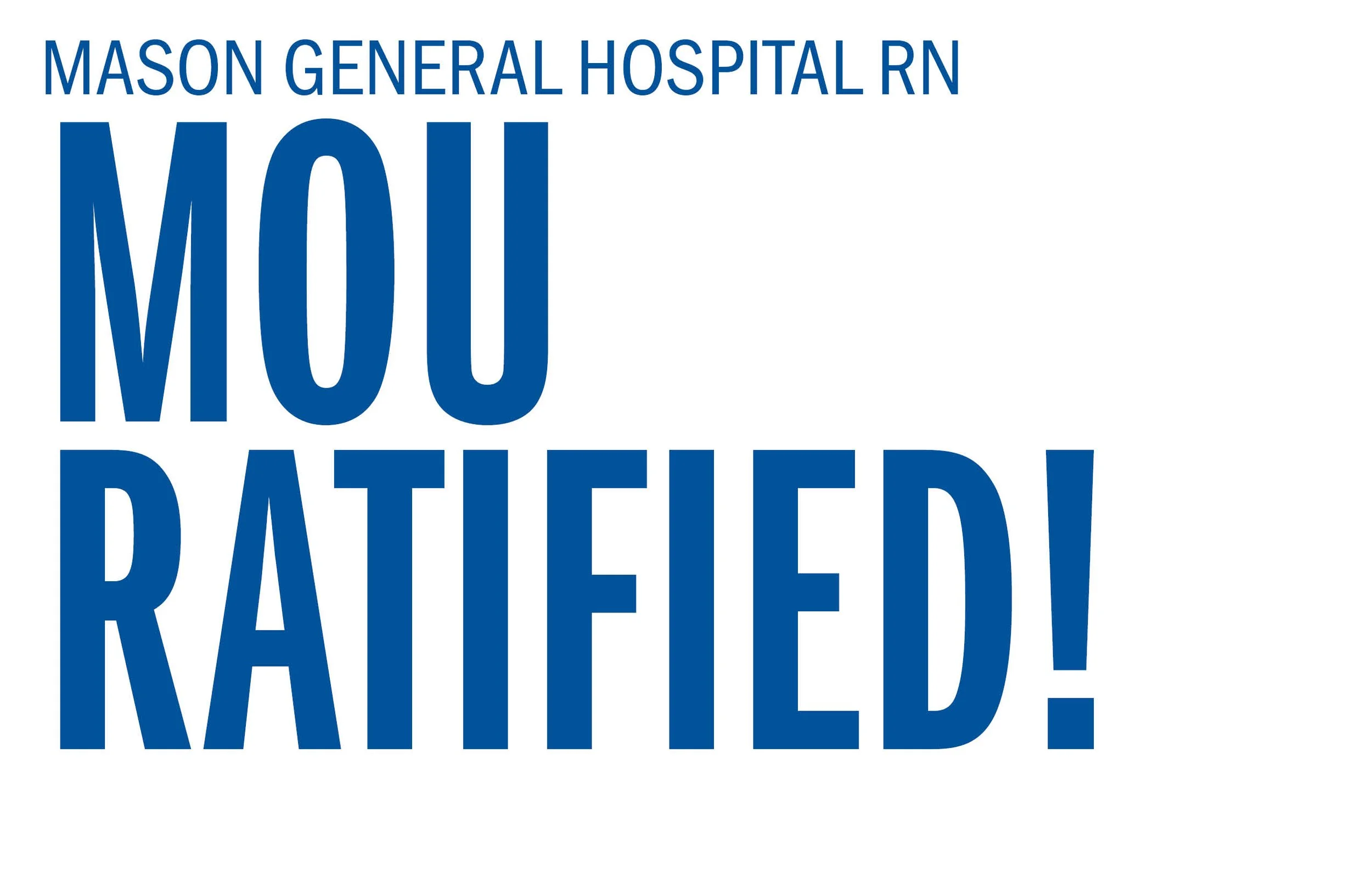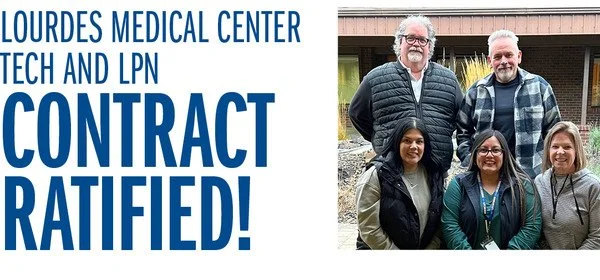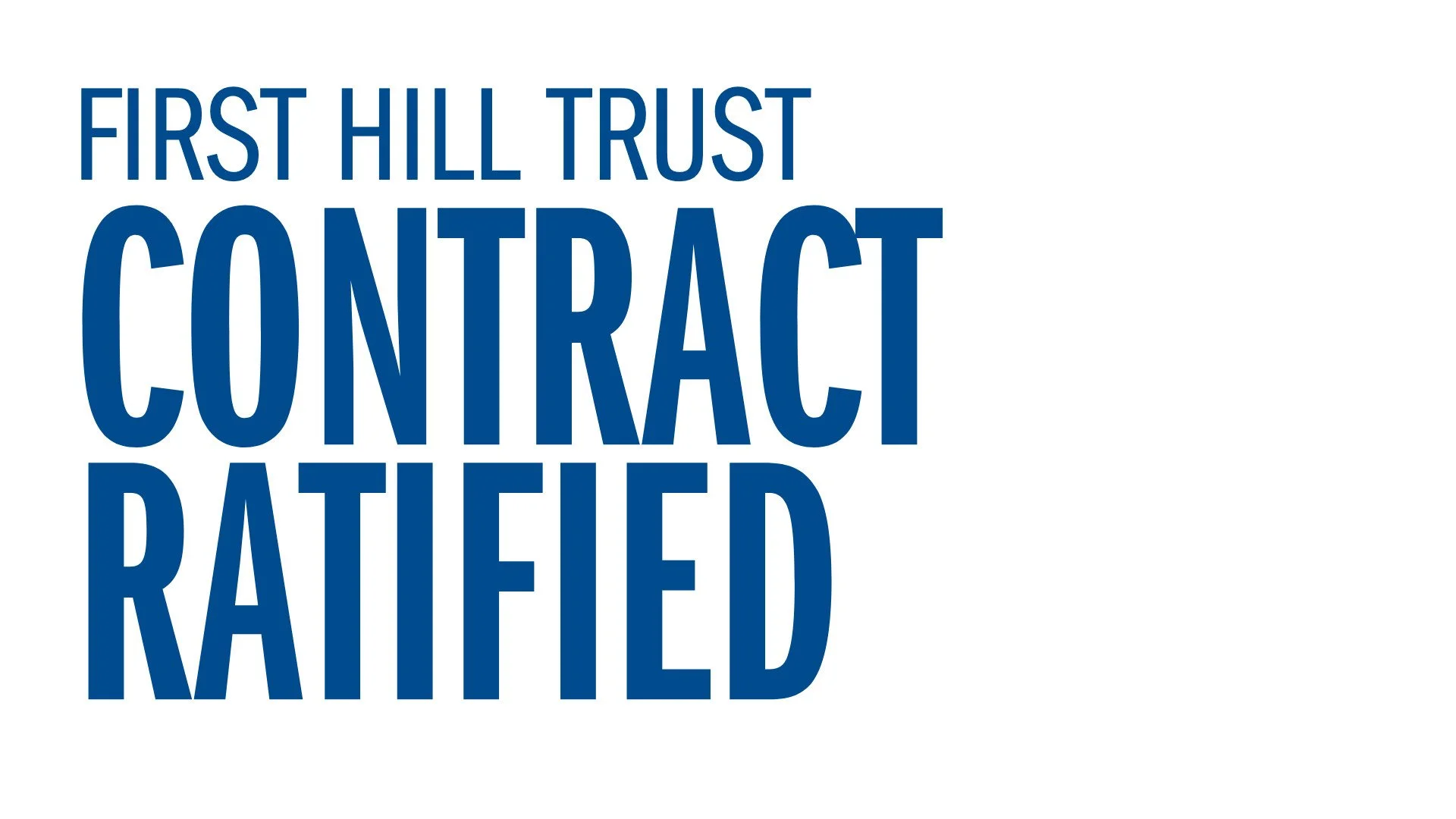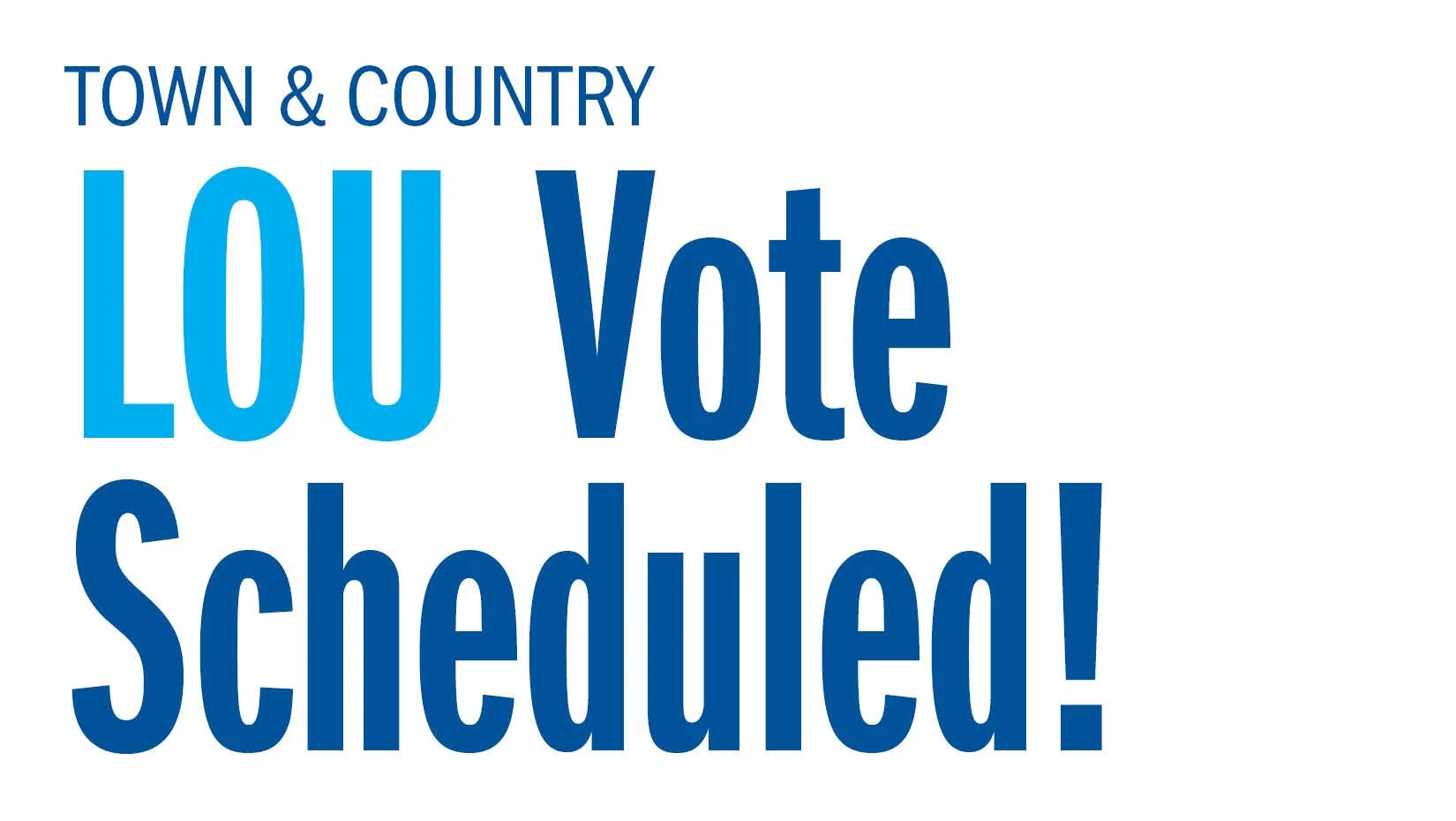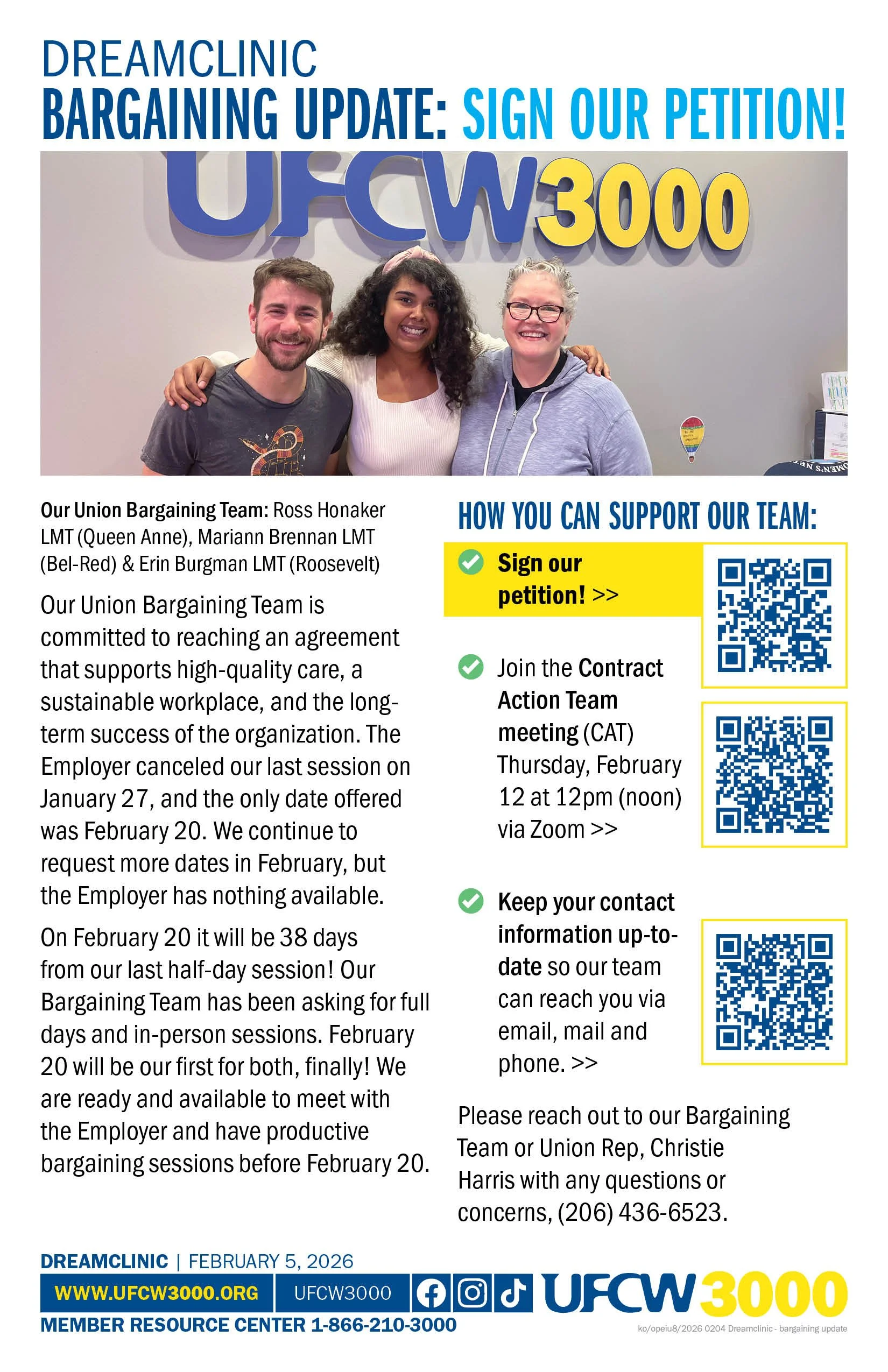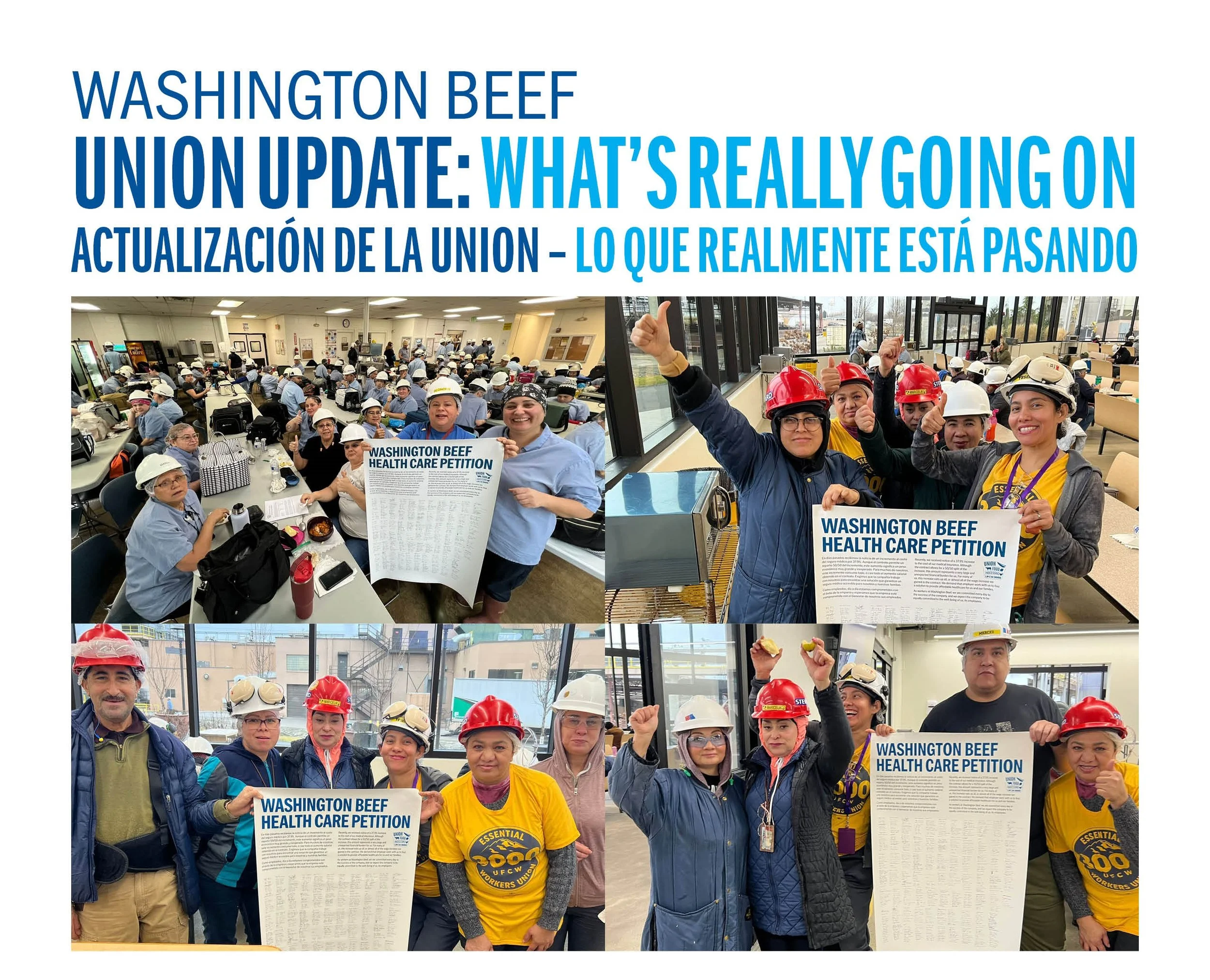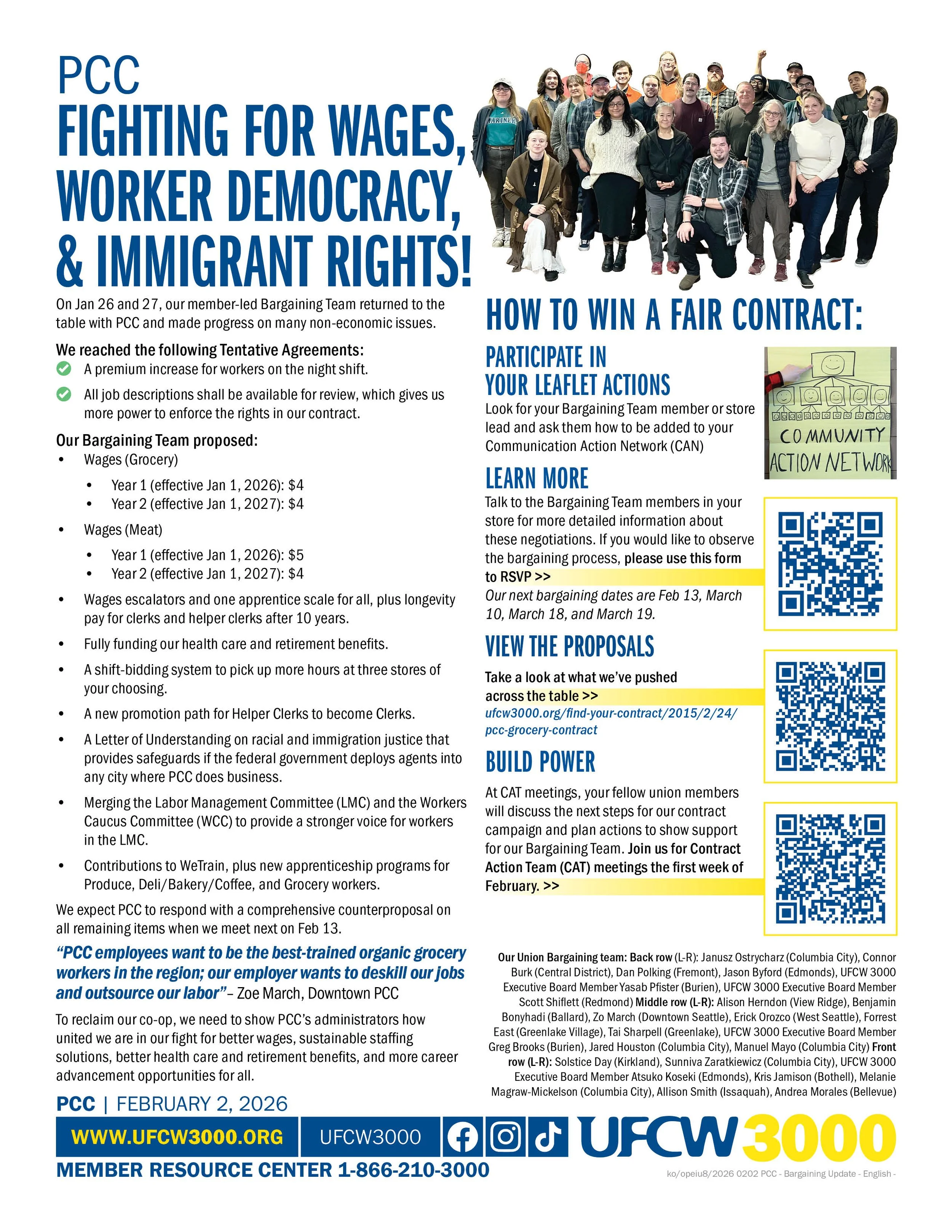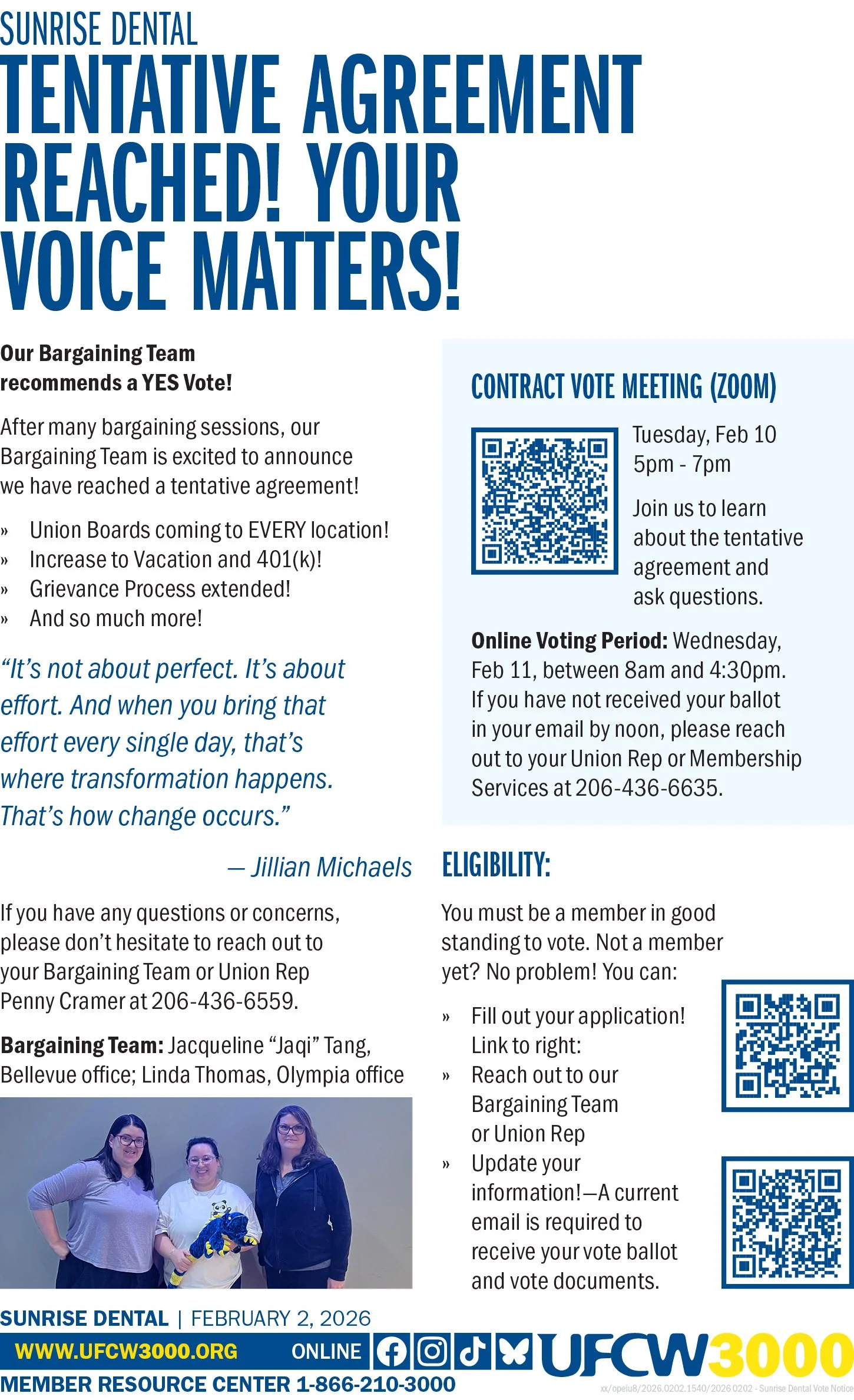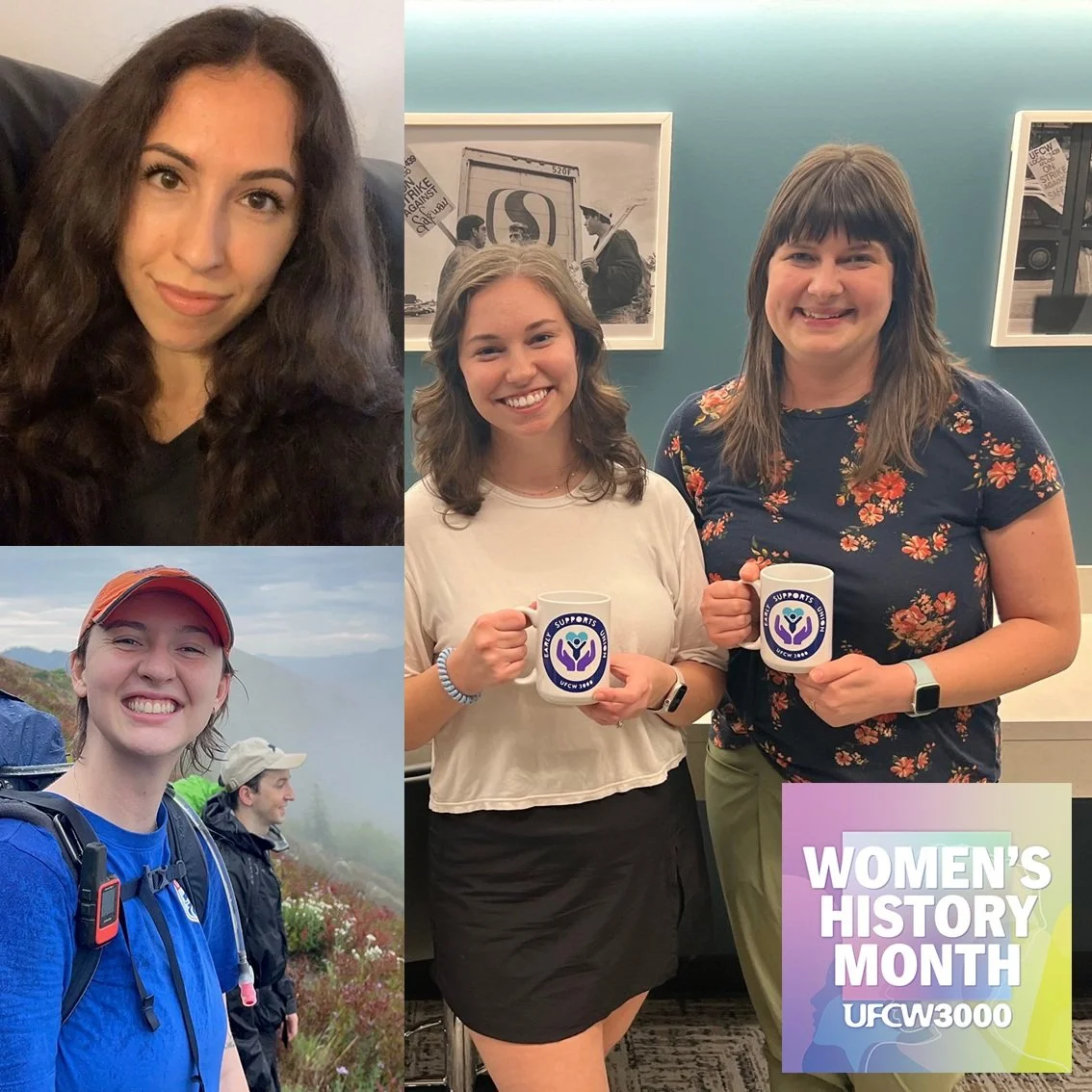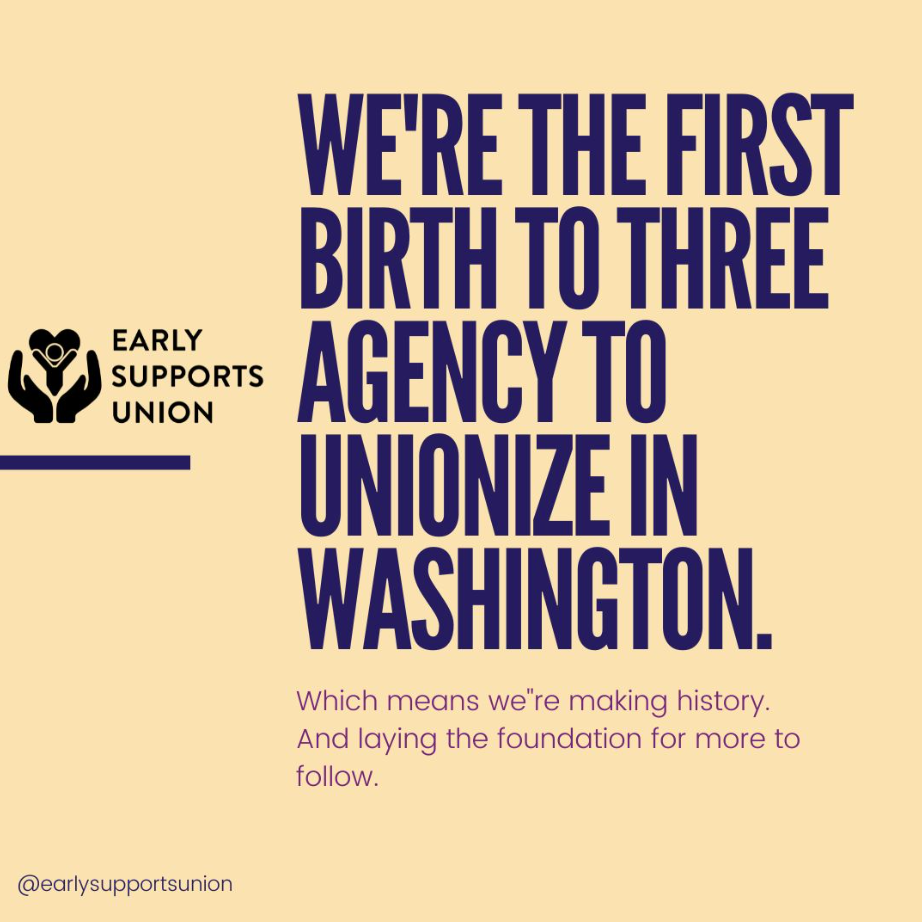Women's History Month Member Story: Northwest Center Early Supports Workers
/The NOrthwest Center Early Supports Bargaining Team, From left to bottom to right: Kaylee Ainge, Kirsten Syberg, Kimberly Burns, and Jenica Barrett
In 2022 Early Supports workers at Northwest Center decided to form a union and contacted organizers at UFCW 3000. Northwest Center is a not-for-profit organization that provides assistance and support to people with disabilities or those who care for them. The Early Supports Services program offers services to children who have issues with their early development along with their families.
Bargaining team member Jennica Barrett said their team provides “speech therapy, physical therapy, occupational therapy, and resource coordination. We’re kind of a holistic child-focused team.” Kimmy Burns, also on the bargaining committee, added that Early Supports is about “making sure these kids can excel” as well as educating parents and caregivers, and connecting them with the resources needed “to care for their children.”
These workers are professionally trained therapists who care very deeply about the families they serve. As the world moved away from pandemic restrictions being a part of daily life, they were seeing increasing problems with their working conditions and how it was impacting the quality of the care that they were able to give. The leadership of Northwest Center wasn’t seeing what they were seeing, so the Early Supports workers began meeting as a group to talk about solutions.
Often the professional care and support of children is work done by women. From daycare to primary education to healthcare, women overwhelmingly are the ones doing the work to care for our children, and unfortunately that can mean that this work is undervalued, underpaid, or made invisible. Caregivers can be expected to sacrifice fair pay, good working conditions, and a voice on the job, or made to feel guilty for being selfish when they try to change that.
The women at Northwest Center Early Supports knew that they did not have to accept this, and understood that advocating for better compensation and working conditions for themselves would help, not harm, the families they served. They concluded that they needed to organize a union to make sure that their voices were heard and that they could meet with management at the bargaining table as equals.
After they won their election they formed a bargaining committee (and added to it after a member left Early Supports), then got down to business at the bargaining table, where they continued to assert themselves as an independent voice speaking out on behalf of themselves and their client families. They started an Instagram page for their unit, including creating their own Early Supports Union Logo, and did not hold back in letting everyone know just how important their struggle was and how committed to it they were:
Early Supports Union’s First Graphic Post
To show union solidarity in the workplace they had stickers, static cling decals, and coffee mugs with the logo they made. Management was definitely hearing from members at the bargaining table and in their offices!
First contract bargains can take a long time to complete and are nearly always difficult because the Union is literally bargaining with the Employer over everything. But because of the strong solidarity of this bargaining unit and the strong women leaders who knew they were making history, the Early Supports Union reached a tentative agreement in late January 2024, and ratified their first contract in February.
In their contract they won:
Wage scales with raises every year
A caseload system to start to ensure that client families got the proper care they need
Better break times
Increased paid time off
New wage recognition for education, degrees, previous job experience, and tenure
Basic seniority rights and protection from unjust discipline
There were many other victories in their first contract, and so the group worked with their union rep to hold a meeting for everyone to learn about their new rights under the union contract and how to make sure the contract is enforced.
The women leaders of Northwest Center Early Supports did what they set out to do, made history, and laid a foundation for others, but they aren’t stopping now. They look forward to upcoming Labor Management Committee meetings, and the next bargain in 3 years!


